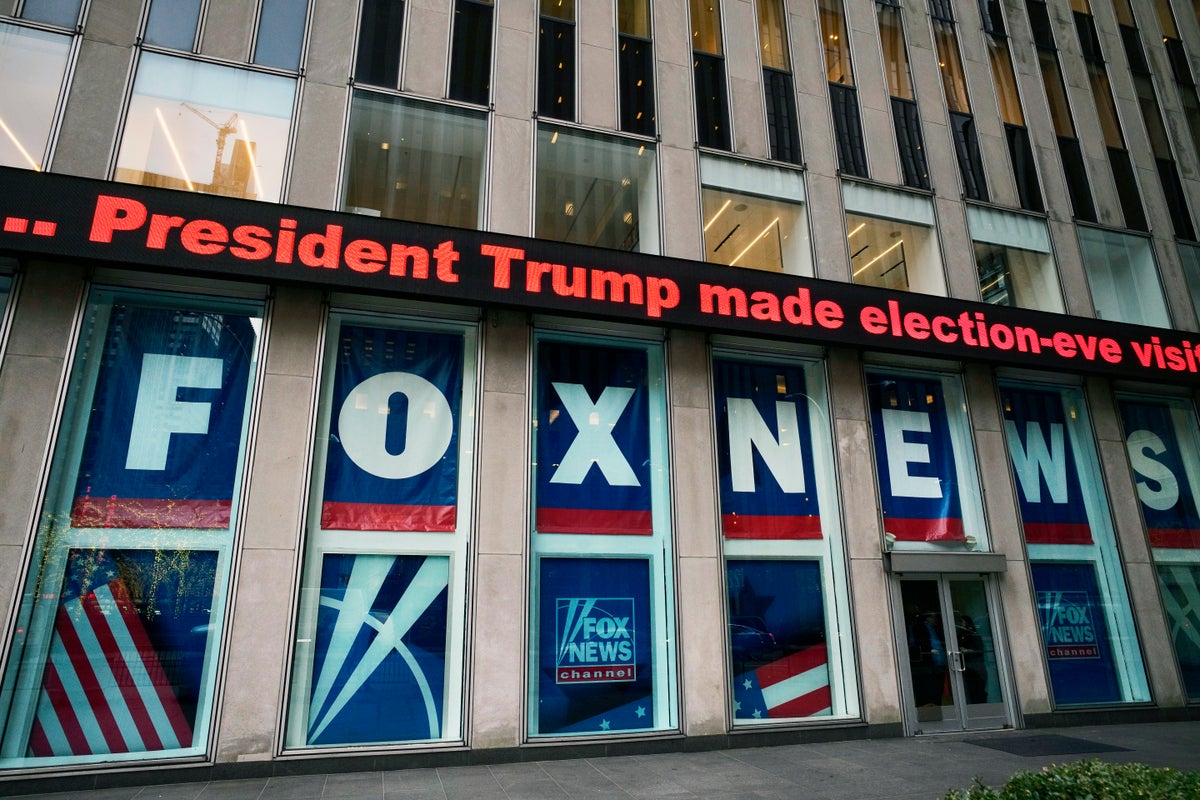
Lawyers for Fox News and a voting machine company tangled Wednesday over the high bar to prove defamation in a $1.6 billion lawsuit that has embarrassed the conservative network over its airing of false claims related to the 2020 presidential election.
The argument is at the heart of each side's attempt to persuade a Delaware judge that he should grant summary judgment in its favor and avoid a jury trial scheduled to start next month that would focus in part on media protections afforded in a nearly six-decade-old libel standard.
Denver-based Dominion Voting Systems claims that Fox program hosts, with the knowledge of executives for both Fox News and parent company Fox Corp., repeatedly allowed allies of former President Donald Trump to falsely claim that the machines and the software the company used were responsible for Trump’s election loss. Documents released during the lawsuit have shown that top Fox executives and personalities didn’t believe the claims but aired them anyway.
Fox contends that it can't be held liable for defamation for simply reporting on newsworthy allegations — a sitting president’s claim that the election was being stolen from him.
Fox attorney Erin Murphy argued Wednesday that the parent company cannot be held “vicariously liable” simply because Fox Corp. executives, including chairman Rupert Murdoch, might have had knowledge of who was appearing on Fox news shows and sometimes communicated with Fox News Network officials.
“Fox Corp. doesn’t belong in the case at all,” she said.
Murphy also argued that Dominion cannot demonstrate that anyone at Fox Corp. acted with actual malice without first proving that that person directly participated in any of 17 programs that aired between Nov. 8, 2020 and Jan. 26, 2021, in which the allegedly defamatory statements were made. In addition to the programs, Dominion is claiming that three tweets from former Fox Business Network host Lou Dobbs were defamatory.
Dobbs repeatedly offered a platform for Trump lawyer Sidney Powell to make unproven allegations about Dominion. Murphy argued that Dobbs often went “out of his way” to acknowledge evidence on the other side and explained why he had doubts. He also offered several invitations for Dominion representatives to appear on his show but was always turned down, Murphy said.
“I don’t think that’s consistent with actual malice,” she said.
Her comments came one day after Delaware Superior Court Judge Eric Davis said Fox appeared to have “a Dobbs problem.”
Stephen Shackelford Jr., an attorney for Dominion, said Fox can't escape the fact that Powell, during a Nov. 13, 2020, Dobbs program, made a clearly false statement that Dominion was created to produce altered voting results in Venezuela for late president Hugo Chavez.
“Fox viewers don’t expect Dobbs to bring liars on to his show to lie to them,” Shackelford said.
“Sidney Powell was hunting for somebody to make her relevant, and Fox made her relevant,” he added.
The two-day summary judgment hearing was perhaps the most significant court action to date in a lawsuit that already has revealed Fox personalities’ private disdain for Trump and illustrated how political pressures can inform its coverage. The case also holds the potential for redefining libel law in the U.S.
Dominion attorneys say Fox employees allowed guests to falsely claim that the company had rigged the election, flipped large numbers of votes from Trump to Joe Biden through a secret algorithm, was owned by a company founded in Venezuela to rig elections for Chavez, and offered bribes or kickbacks to government officials who used its machines.
Fox attorneys argue that the key issue is not whether the allegations were true or false, but whether it was accurately reporting the allegations. They also argue that there is a critical distinction between a factual statement and an opinion.
“Despite the noise and confusion that Dominion has generated by presenting cherry-picked quotes without context, this case is ultimately about the First Amendment protections of the media’s absolute need to cover the news," Fox News said in a prepared statement Wednesday.







